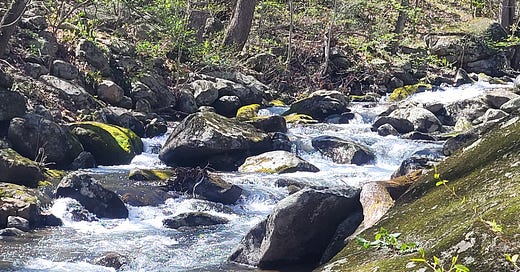Back again with some game design musings.
I’ve been working quite a bit recently on an updated Wild West game that builds on the basic system of The Reckoning. I’m nearly finished with the playtest document for this expanded sandbox game.
Creating a more robust game that allows for free exploration, character progression, and long campaigns differs significantly from a one-shot. Since I haven’t finished the game yet, I won’t call them lessons, just ideas.
Idea 1 – What kind of game should I make?
This is likely an overriding concern for many who start designing games. They want to know what sort of game other people want to play. It makes sense, especially if you want to sell it at some point.
However, unless you’re getting paid well to develop games for an established company, creating a game because “you think it will sell” is the worst possible motivation. There’s no way to know if your game will fade into oblivion or be the next indie classic.
My advice…write a game you and your friends will enjoy.
Love fantasy? Then make a sword & sorcery game. Can’t get enough Mad Max in your life? Go full apocalyptic.
Seriously, I’m writing another Wild West game with a Cormac McCarthy grimdark vibe. No dragons, mutants, or magic.
I don’t know if people even like the Wild West (vs Weird West) genre anymore, but it doesn’t matter. That’s the game I want. I hope others like it, but that’s not my driving force.
This isn’t to say you can’t make money or shouldn’t charge a fair price for your work. However, I will bet against anyone finishing a game they dislike.
Idea 2 – How long should the game be?
There are super popular games like Cairn 1e with a rulebook that’s 25 pages long. Contrast that to Zweihänder, an RGP classic with a core ruleset that is nearly 700 pages. If both of those are hits, shoot for somewhere in that range.
Obviously, I’m joking.
Your game needs to be long enough to contain all the rules and any extra material you want to add. That’s it. No more, no less.
I would say it’s best to start small. Kind of like writing fiction – start with vignettes and short stories, move towards novellas, then maybe try a novel. I’m pretty sure most professional writers would agree with that.
Completing something small gives you a success. Success doesn’t necessarily mean best-seller; it means finished.
Finishing one small project gives you the confidence to complete another project. Eventually, with experience, you can level up to longer work. Or maybe you’ll find that you prefer writing small games.
Keep your projects manageable.
If you regret leaving something out, you have a reason to write a supplement or add-on.
Idea 3 – How do I prevent burnout?
I would package it up and make millions if I had the perfect answer. Everyone, and I mean everyone I’ve spoken with about any creative endeavor, has gotten burned out. You know, that flat feeling when you just can’t seem to move forward.
My suggestion is to take a scheduled break. Put your game aside and do something else.
Read a book, take a road trip, journal, go camping.
Do anything except think about your project. It will seem like you’re wasting time and might feel guilty. I’m speaking from experience here.
The grind isn’t always the best. Creative people need to take time off and have experiences to recharge. If it bothers you to think of it as a break, label it something else.
Nothing helps my ideas flow freely like getting outside in nature.
Take a sketchbook, journal, or voice-to-text if you’d like, but lose yourself in the moment. Maybe hiking or camping isn’t your thing. Just find out what is and do that.
Again, this is just a journal of sorts. A place for me to dump ideas, I hope, may spur you forward in your work.
Keep at it, and let me know your thoughts in the comments!




This was the advice I needed today. Thanks!
Great advice. I think I'd say do as little as you think you can get away with. Then playtest it. Then you'll know what you need to add :)